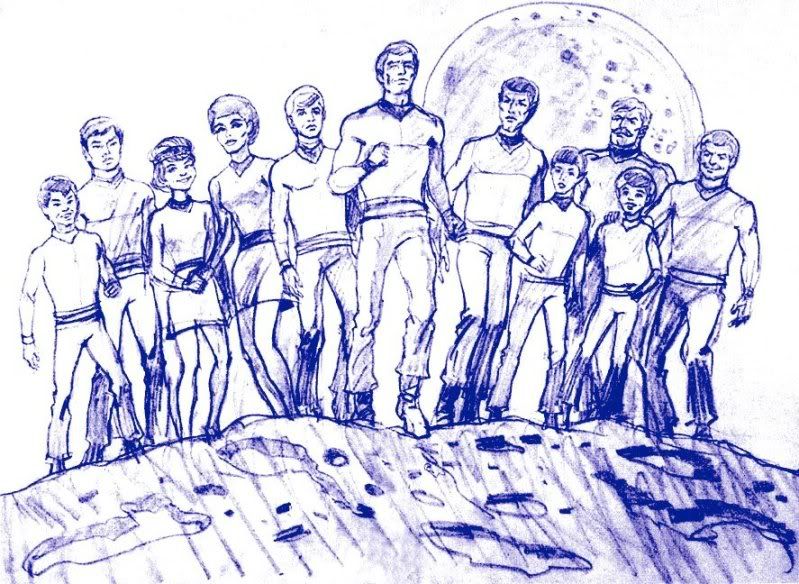I don't agree with you on this - for me, TAS clearly has the feel of a kids show. Personally, I don't believe a children's TV show has to be populated by "teen sidekicks" or "cute alien pets" to qualify as such.
Everything's relative. Compared to the other Saturday morning cartoons of the era, TAS was far more "adult." Yes, compared to what we have today, it feels more juvenile -- but then, so does TOS compared to something like DS9 or Caprica. I'm speaking here of the intentions, not the results. It's a factual error to claim the creators of TAS intended it to be aimed specifically at children, because there are documented statements refuting that assumption. Yes, it was designed to be safe for children, to avoid deadly violence and love scenes and what little profanity was allowed in prime-time TV, but aside from that, its writers and producers were told to treat it no differently than they'd treat a TOS assignment.
If that image is meant as "evidence" that TAS was somehow more juvenile in focus, let me remind you that Spock's pet sehlat was first referenced in "Journey to Babel." D. C. Fontana wrote both episodes. She was simply taking advantage of TAS's greater visual freedom to depict something that she was only able to suggest verbally in TOS.
Indeed, it's a poorly chosen example, since I-chaya's death in "Yesteryear" is one of the things that marks that episode as considerably more adult than most Saturday morning TV of the time. Even acknowledging the concept of death has generally been a no-no on children's TV (which is why so many cartoon villains only use synonyms like "Destroy them!" or "Annihilate them!" -- even the word is generally forbidden). But "Yesteryear" is loaded with references to death: alternate Spock's death at age 7, his mother's death in a shuttle crash, I-chaya's death. Plenty of other TAS episodes freely acknowledge the risk of death even if they don't depict it. "The Pirates of Orion" even mentioned suicide bombings, hardly a kid-friendly concept. Note paticularly "The Slaver Weapon" -- the only time in Filmation's entire canon prior to 1987's Bravestarr in which sentient beings actually die in the course of an episode. "The Slaver Weapon" was very faithfully adapted from Larry Niven's Known Space novella "The Soft Weapon," which was definitely not written for children.
And yes, TAS occasionally has some silly premises, but no worse than TOS had. The crew shrinking to tiny size is no more ludicrous than Flint shrinking the Enterprise to a tabletop model. A giant Spock clone is no sillier than a giant Apollo. Megas-tu is no sillier than Sylvia and Korob. The ship's computer playing practical jokes isn't much sillier than the ship's computer flirting with Kirk and calling him "dear." "The Counter-Clock Incident" is pretty stupid and incoherent in its portrayal of a negative universe, but then, so is "The Alternative Factor."



